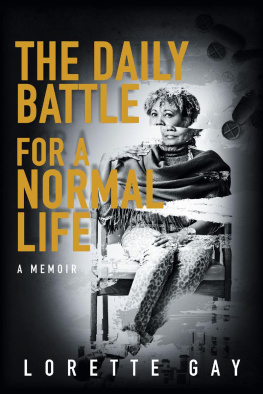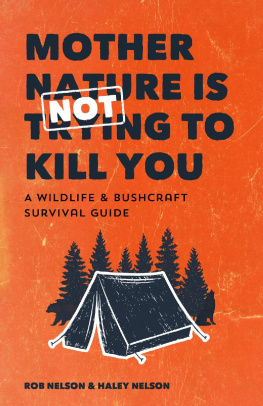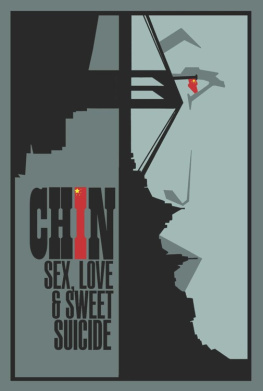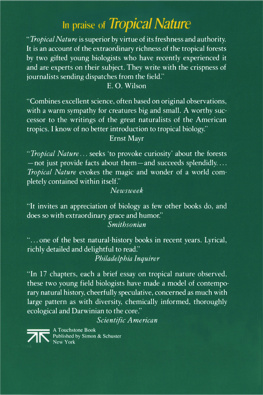Childhood
My name is Marie Rosette, but people call me Olivia, the name that was given to me at birth by a midwife, a Canadian nun, in commemoration that I was the first baby she delivered in Haiti. Her name was Sister Olivia, and she gave me her own name like I was her own daughter. My mother legally registered me as Marie Rosette Robert. Not too many people are aware of my real name, but from that moment forward, everyone, including my mother, called me Olivia. My mother likely forgot about her right to use the name on my birth certificate because she called me Oli from that day forward.
Was it out of respect for the nun who delivered me? I dont know, but the ecclesiastical sisters name will stay with me forever.
At the moment of my birth, Marie Rosette became nonexistent. The genuine me stopped existing at the very onset of my life, and a counterfeit me took her place. Later on, when I started going to school, the matter of my name became more complicated, and later, when I changed my last name in marriage, Marie Rosette Roberta woman whom I never metwas utterly obliterated. As you can see, my life was set before me by the muses and the power on high the moment I exhaled my first crybaby breath on earth.
I was born in a small town, Roche-a-Bateau, which is situated in the south of Haiti. One side of this tiny village is positioned on the Caribbean Sea, and the other side is surrounded with mountainsa beautiful, peaceful piece of green land. The panorama is a spectacular from all angles. When I lived there, the population was about two thousand, so everyone knew everybody else. It was very cozy, admirable, and inviting, made even more picturesque and impressive by its smattering of little houses topped with sheets of aluminum or palm leaves, depending on the residents financial capacity. The abodes were surrounded by wild gardens. All sorts of uncultivated flowers, disorderly plants, and weeds grew around these tiny houses. From above, the town looked like a bowl of kale salad with tomatoes, yellow peppers, and a few slices of almond scattered here and there.
Lush verdure comprised most of the landscape. Grass and wild vegetation sprouted between the stones, gravel, and flat rocks that comprised the narrow streets, which offered just enough space for one person to find the entranceway of each dwelling. The smell of the greenery was like allspice dampened by aromatic ylang-ylang oil. Imposing trees, including ylang-ylang, lined the streets and had done so for centuries (or decennials, who knows?), making the landscape even more unique and lugubrious, especially at night.
At that time in history, Roche-a-Bateau hardly saw any private cars or buses on its dusty streets, or terre battue, as we say in French . There were specific days to travelonly three times a weekwhen people waited at a designated place for a single bus. If you got lucky, you might get a seat (likely only reasonably big enough for a small child, so you had to squeeze), and the trip might take three to four hours, depending on the weather and where you were going. If there was rain, the mud made it difficult for the bus to go at a normal speed. The same bus picked up people from different towns, meaning that the bus stopped and started regularly. That said, travel was uncommon for the people of Roche-a-Bateau. We didnt easily leave home to go to the cities unless it was absolutely necessary. When possible, we made bus reservations and paid ahead to guarantee our seats, lest we wait on standby in the hot, dusty streets for hours.
When I lived there, none of the families possessed cars. We were free of that kind of expense and pollution. There was no electricity, no television, and no telephones except for a public payphone in the gendarmes barracks. No one had a refrigerator, and water was sourced from the stream in calabash containers. Calabash is a large, coarse species of gourd, similar to a pumpkin. To make a water container, the inside of the gourd was removed, cleaned, and dried. After the water was carried from the stream, it was stored at home in a clay ceramic vase called a cruche, which kept it fresh even when the weather was extremely hot.
For entertainment, children like me read book after book, went to church, and hung out with friends, but the latter wasnt permitted to me by my grandparents. My three aunts were my only friends, and that was that. My maternal grandparents believed that home was where I belonged, not hanging out with untrustworthy kids, even though they were friends with their parents. They preferred to send me to an old womans house to keep her company rather than let me be with kids my own age. She was a good friend of my mothers and didnt have any children of her own, so she treated me like I was hers. She had a bakery and would give me bags of cookies, which was the main reason I liked to go there.
It was at her house where I had my first bad taste of life. I was five years old, running into her house, when I missed a step on the porch. I fell down onto the glossy gray concrete and split open my chin, blood gushing out. That fall gave me long, ugly gash under my chin. Fortunately, none of my bottom teeth were broken, but I still have a big scar as a souvenir, which has since grown hair.
A very powerful river separated Roche-a-Bateau from the other village in the south. The water came from the mountains and streamed into the ocean. During the rainfall season, the river flooded, and the villages were submerged in water, destroying houses and roads and killing many people and animals. However, this didnt stop the residents from rebuilding in the same place every year, hoping that one day, the watercourse would forget its route.
During the summer, this dangerous river looked crystal clear, paved with stones of many colors. It served as a self-service laundry and a bathhouse for both children and adults. I could only go to the river under my aunts supervision. The beach wasnt far away either, not even three miles from where I lived. It wasnt really a beach but a place where fishermen sold their catches, unclothed children played and splashed in the water, and half-naked adults swam for recreation. Because my grandparents didnt allow me to stray far from home, I never put my feet in the seawater, but I watched it closely. I told myself that as soon as I was old enough, my first adult decision would be to have a taste of the vast, exuberant sea. Its part of the wonderful gifts that God generously gave to us at creation, and for the sake of God, it has remained available to us to this day, free to the public.
My grandparents and my aunts were too cautious to let me have fun in the water for fear that something bad would happen to me. The sea waves are too dangerous, they said to me again and again. They dont distinguish between an innocent child and an adult. The power of the surf can drive you away to the deep side of the ocean. However, we know that you are our little girl, and we are here to protect you, Oli. You can do this when your mother comes on vacation with us.
Like many grandparents, they had the uncanny ability to say things so sweetly and softly that I took what they said as the absolute truth. Later in my life, I understood that my grandparents had a responsibility when they cared for me. My mother left me with them as my guardians, so they intended to do the job well. Plus I wasnt completely alone; I had three aunts, living in the same house, who were only slightly older than I was and who loved me very much. Still, there were things that I couldnt say to or do with my aunties that I could with a friend my own age, out of respect for them.
I had to use my imagination to create something to do so that I didnt get bored. That is how I started staring at the birds, talking to them. I found them to be so beautiful and lovely to watch. I fed them with cornmeal, millet, or whatever grain I could find. The fun didnt stop there; I also captured butterflies with an empty jar and ran after animals of any sort, like cats and dogs. I also played with my fabric baby doll, which didnt resemble anything on earth. The doll was made with brown fabric and had two black buttons for eyes, black threads for hair, and a fine embroidered line for the mouth. I thought it was pretty nicely made until I went overseas and saw the white porcelain dolls that were common there, which I owned later.









